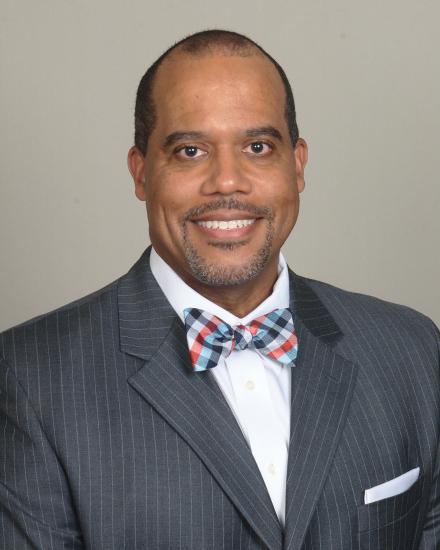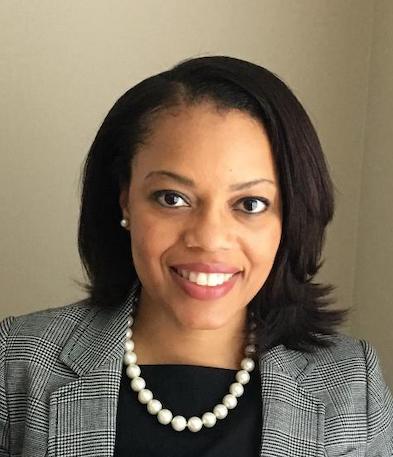How It Started. How It's Going: An Interview With Ryan Mire, MD, FACP, ACP President-Elect


Ryan D. Mire, MD, FACP
TH: How did you initially get involved in ACP?
RM: First, my Internal Medicine Residency Program Director and my Chair of Medicine were both active within ACP. As an intern, I admitted an interesting case and was asked by my Program Director to present the case for the ACP Virginia Associates Day Abstract Competition. I had no experience with scholarly activity outside of my clinical duties, but I agreed to submit the abstract. The Virginia Chapter Associates Day was a blast, and I received both positive and constructive criticism from several senior Virginia chapter leaders (and judges) to help improve my oral presentation and PowerPoint skills. I was grateful that ACP leaders were investing their time to assist me. My abstract presentation advanced to the state meeting and eventually won the national ACP Abstract Competition in 1999. Presenting my poster on a national level in New Orleans at the Internal Medicine Meeting in 1999 was amazing. I was hooked after witnessing the abundance of lectures and learning opportunities, along with being surrounded by thousands of internists who were present for that meeting. I never looked back and decided to stay involved to give back to ACP for my exposure and experience.
TH: Why have you stayed involved?
RM: I have remained involved because ACP is the professional home for internists. I have witnessed ACP being a leader in organized medicine with their expertise in education, advocacy, professionalism, and public health. Although there are multiple member segments and specialties under the house of internal medicine, ACP has a strong collective voice in health care and makes sure the patient is at the center of health care, while supporting membership to assist in their daily involvements with patient care. ACP is always working on my behalf to assist my professional life, so I want to give back my time and participation to serve the organization in return.
TH: Did you ever anticipate becoming President-elect?
RM: My journey though ACP has been a roller coaster from a leadership perspective. I have been on both the side of winning and losing nominations/elections throughout my career. The very first ACP position I applied for on a national level was a seat on the Council of Associates (currently the Council of Resident/Fellow Members), and I was not selected, despite being actively involved in the Virginia Chapter at the time. In addition, I dealt with the loss of an election at the Governor level for the Tennessee Chapter. So, to answer the question directly, no, I never envisioned being an officer of the College, and my journey has included disappointments along the way. However, despite my personal disappointments along the way, I never let that deter me from working to serve the College and just kept grinding. It wasn't until my election to the Board of Regents that I realized being an ACP officer was a possibility for me.
TH: Some people find it difficult to find a mentor. What is your process?
RM: Most of my mentor relationships have organically developed, while some have been intentional. I would start by saying mentorship should be diversified based on your situation and your need, as one mentor cannot always serve all the situations and goals you are trying to achieve. Thus, it's acceptable to have multiple mentors. Some mentors may be generalized in the sense that you enjoy the counsel on your professional career, while others may be intentionally sought out for specific situations, such as leadership development, faculty advancement, research, or publications, depending on your individual goals. When I have sought out a mentor intentionally, my approach has been to formally ask the individual to assist me, be clear on my goal, specify my timeline, agree to specified interval assessments along the way, and ask for their sincere feedback and honesty. I do find it essential to verbally indicate your appreciation throughout the process given that mentorship is voluntary and takes time away from someone who is usually very busy. In serving as a mentor to many others, I enjoy this same approach with expectations that are clear and focused.
TH: Name something that was surprising and valuable when you served on the CECP.
RM: One aspect of serving on the Council was learning about the vast number of ECPs who are doing impactful work across the country. By working closely with other ECPs in various geographical and practice settings, it was insightful to see the contributions to education, scholarly activity, and innovation manifested by my peers. Another surprise was the willingness of ACP leadership to hear the voice of the early career member segment. Council of Early Physician members have representation on each of the ACP national committees and governance boards. Regarding value, the CECP experience provided significant networking opportunities with people I would have never encountered due to geographic distance, but most importantly, it provided meaningful friendships that I continue to cherish with many of my CECP colleagues that I served with.
TH: What advice do you have for ECPs?
RM: My advice for ECPs is to get engaged with organized medicine, as ECPs are the future of internal medicine, and ACP needs and values your voice. There are so many life aspects that can impact well-being in the early career stage of your professional life, but making some time to be a part of an organization like ACP that always is working to help you and your patients can be a regenerative activity. There are varying degrees of involvement, so it does not have to be at a national level. Grassroots involvement at the local or chapter level is appreciated and pertinent to serving the patients in your own community. We have seen over time how physicians' lack of involvement has led to “others” (government officials, insurance companies, lawyers, etc.) making decisions for our medical profession because we have sat on the sidelines and just focused on the patient care. However, there is no better way to care for the patients we serve than to be a part of an organization that has a voice and a seat at the table with health care stakeholders to make the lives of our patients and ourselves better. Get engaged, stay involved, and make a difference!

Interview by Tracey L. Henry, MD, FACP
Back to the February 2022 issue of Chapter ECP Leader News Update

